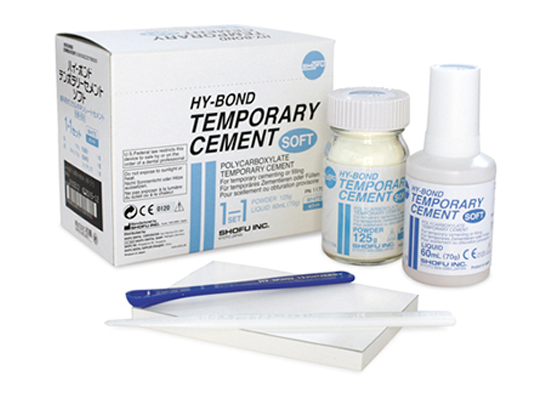All You Need To Know About Dental Cements - From Permanent Crowns To Temporary Fillings
- marketing2020india
- Nov 6, 2023
- 3 min read
Many are curious about the role of dental cements in dental procedures. There are various kinds of dental procedures like permanent crowns, bridge cementation and temporary cement fillings. Dental cements are essential in dental treatments to ensure restoration of stability, longevity and proper functioning. From composite resin cement to zinc oxide cement, various kinds of dental cement are available and each one has distinctive uses and properties. While dental temporary cements are common, there are permanent ones too, that can make a significant difference. Here are a few factors that are worth considering when you are choosing one. Read on to learn about the usage and potential risk factors.

Types Of Dental Cement
While it's a well-known fact that dental cement is used in many dental procedures and ensures optimal functionality while restoring longevity - there are two main types of dental cement - permanent and temporary cement. A good-quality dental temporary cement is designed for short-term usage and can be removed easily, while a permanent one lasts longer and can offer permanent bonding. Zinc oxide-eugenol is a temporary cement that ensures a good seal and comes with anti-inflammatory properties. Glass ionomer cement is another versatile type of dental cement that can be used for both permanent and temporary restorations. It releases fluoride and bonds chemically with the teeth to prevent decay. Quite similar to glass is the resin-modified cement that adds resin to enhance strength. Composite resin cement is tooth-coloured and used generally for cosmetic purposes like attaching veneers or in-lays. Lastly, polycarboxylate cement being a permanent dental cement bonds well with both dentin and enamel for releasing fluoride. Selecting the right kind of cement is based on various factors like strength, intended usage, esthetics, durability, ease of use, cost and biocompatibility.
Uses Of Dental Cement
Dental cement is used for many purposes. The temporary fillings are made with dental temporary cement to provide a quick seal until a permanent one gets placed. The permanent fillers ensure long-term stability and function better. Attaching crowns and bridge cementation onto the existing implants or teeth involves the usage of dental cement. Orthodontic bracket bonding is used in dental cement for attaching brackets onto the teeth that are connected by wires for strengthening the teeth. When you opt for implant restoration cementation using dental cement for securing the implant abutment is vital for connecting the prosthetic tooth with the implants. Selecting the right kind of dental cement is vital for every procedure to ensure long-term success and adequate adhesion.
How To Choose The Right Dental Cement?
You need to consider many factors before choosing the right kind of dental cement for your procedure. If you are looking for front teeth restorations, then esthetics are crucial and ensure that the temporary cement matches the natural shade of the surrounding teeth. Ease of usage is another major factor as a few cements require complicated mixing and application techniques. Ensure that the dental temporary cement has biocompatibility so that the adhesive doesn't cause complications and adverse reactions when coming in contact with the patient’s body. Other factors to consider are the setting time, cost of the temporary cement, whether it releases fluoride or not and additional beneficial substances.
Final Words
From bonding crowns and bridges to filling up the cavities, Dental cements are used for a variety of purposes. With a proper mixing and application technique you can ensure optimal bonding for longevity and strength. Ensure careful consideration and pay attention to detail by choosing dental cement that can offer a long-lasting and reliable solution for a variety of dental procedures.



Comments